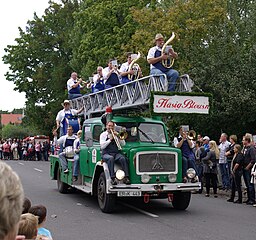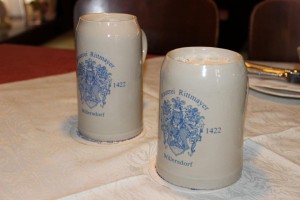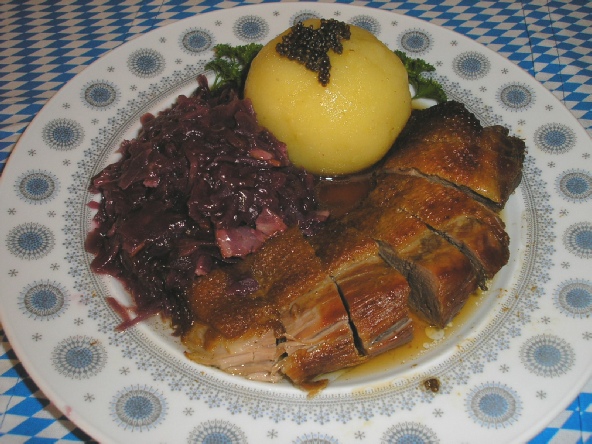Kirchweih commemorates the anniversary of the consecration of the local church. This festival has many dialect variations from the Swiss “Kilbi/Chilbi” to “Kermes” along parts of the Rhine to the Franken “Kerwa”. Kirchweih is in many German towns and villages, since medieval times, a religious festival celebrating this event.
Nowadays the religious context of these “Fests” became often secondary and the festival itself, spanning a period of several days, is the main attraction with food, drinks, music and dancing. I know of some organizations hosting this festival here in the USA which have no connection with a specific church. Others will start with a procession and a church service, sometimes outdoors.

As these festivals always include food, in the area I come from Roast Goose with Potato Dumplings and Sauerkraut is customary, something to wet your whistle, again in my area it is Beer and in the German wine regions, you guessed it, it is Wine. They usually include dancing and always the Gemütlichkeit, Bavarians are known for! Processions and parades are often included and one notable tradition in some villages starts by digging up a bottle buried the year before, to begin the celebration and ends when a new bottle is buried in the same spot, to be recovered the following year.
The date of these festivals differ from town to town and while vacationing in Bavaria, during the summer and fall, you should be able attend at least one of them somewhere close by. The multitude of these entertaining festivals in Bavaria in any specific area were viewed by the temporal and spiritual authorities as too excessive. It was decided by them to designate one specific day of the year for Kirchweihs, so that the citizens of neighboring villages could not attend all these festivals throughout the region, thereby cutting down the alcohol consumption.
Somehow this ruling did not prevail and could not be enforced in many regions.
An Old Bavarian saying states, freely translated, that
a good Kirchweih always lasts until Tuesday
and a great one will not end until Wednesday.
 |
|
 |
|
 |
|
 |
|




